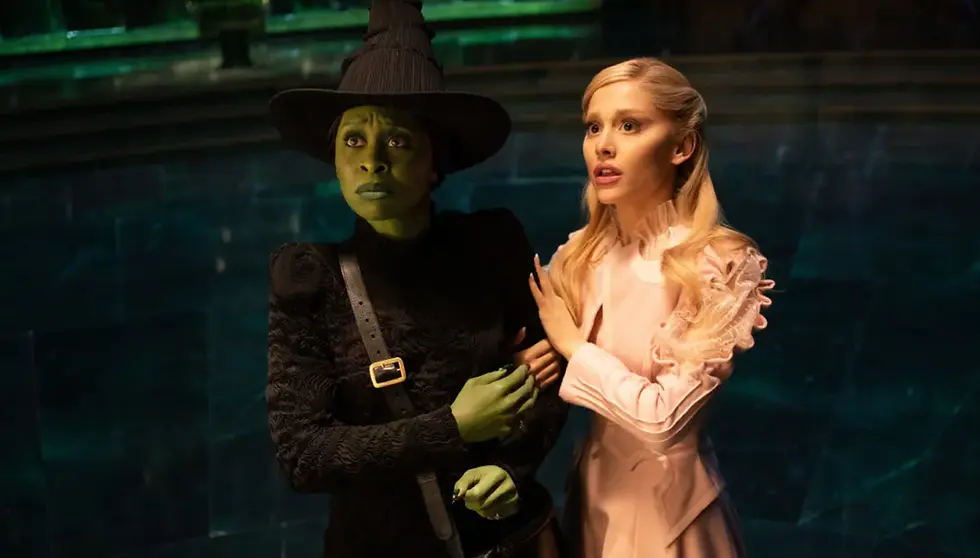Hadestown - National Theatre
- comaweng
- Nov 20, 2018
- 4 min read

I recently saw a YouTube video of the final night of The Poor School, in which its founder and director Paul Caister – not liked in some quarters because of his forthright approach - spoke. In a closing night speech, bringing The Poor School to an end after 32 years, he lamented the popularity of the modern adaptation of classical works, particularly in British theatre. I agree with him on that point, and have found myself watching an ‘adaptation’ of something or other, wondering why on earth didn’t the writer(s) just come up with a new show?
Now Hadestown is, albeit an American import to the National Theatre, an adaptation, but even I have to admit, this was rather good. I am led to believe it has secured a transfer to Broadway already. Here, on a drizzly Monday night in November, at a ‘regular’ performance (that is, not the press night filled with investors plus friends and families of cast and creatives), a significant proportion of the audience rose to their feet at the curtain call, without any encouragement or overly celebratory encore. There was an encore, and it was quite reflective, and so unexpected that some people had left the theatre without having had the chance to hear it. Their loss.
It is not entirely sung-through, but it very nearly is, and a seven-strong on-stage band are utterly delightful. This is, in effect, a retelling of the ancient Greek legend of Orpheus (Reeve Carney) and Eurydice (Eva Noblezada). Boy meets girl, but that’s probably about as conventional this show gets in terms of musical theatre. Unlike John Gay’s 1728 ballad opera The Beggar’s Opera, there are no calls for a ‘reprieve’ at the final hurdle; at the performance I attended, an audible ‘No!’ could be heard from the audience. Those familiar with the old story will know that Eurydice dies and ends up in the underworld, after which Orpheus descends to the underworld (whilst still alive, don’t ask) to see his other half. Such was his ability to play music and sing that the miscellaneous obstacles that would ordinarily stand in the way of someone getting through to the underworld before actually dying are overcome: free passage was given to him for his talents.

Here, Hades (Patrick Page) speaks with a particularly low voice (think the high priest, Caiaphas, in Jesus Christ Superstar). Hermes (André De Shields), acts as the show’s rather classy and assured narrator, who enjoyed a fully justified excellent rapport with the audience from the start. For me, though, although the show is an ensemble piece of theatre – it’s worth naming ‘The Fates’, Carly Mercedes Dyer, Rosie Fletcher and Gloria Onitiri, and the ‘Workers’, Sharif Afifi, Beth Hinton-Lever, Seyi Omooba, Aiesha Pease, Joseph Prouse, Jordan Shaw and Shaq Taylor – the evening belongs to Carney’s Orpheus. The devil doesn’t always have the best tunes, y’know. Some will find the material he warbles through a bit jarring, or otherwise underwhelming: some high-pitched ‘la, la, la’s just didn’t do it for one couple in the row behind, who took to taking the piss in the second half when it was reprised yet again.
There are some glorious moments, though. The jaunty ‘Livin’ It Up On Top’ showcased energetic choreography (David Neumann), and the final musical number in the first half, ‘Why We Build The Wall’ was, for its dark content, a throwback to the call and response songs of old, and a powerful if harrowing example of group singing. It’s topical, because of the Trump Administration, but the song makes little sense in the context of this production (with the benefit of hindsight, and some time for me to reflect on it thanks to yet more post-theatre transport delays – thank you, South Western Railway and Network Rail). What is the point of Hades building a wall around the perimeters of the underworld? By custom in ancient Greece, one went there at the end of one’s life on Earth whether one wanted to or not, so the undesirables (whoever they may be) would end up there in any event.
It is best not to ponder on such matters too much in a show best enjoyed by sitting back and letting the music, wonderfully diverse in style and tempo, wash over you. I think the Regent’s Park Open Air Theatre would be a good place to put a production of Hadestown in one summer. Persephone (Amber Gray) turns the musical into a concert in the Act Two opening number, ‘Our Lady of the Underground’, going as far as to name the musicians individually to audience applause. Breath-taking in places, this was a very satisfying evening.
Four stars

Photo credit: Helen Maybanks
Music, lyrics and book by Anaïs Mitchell
Developed with Rachel Chavkin
Olivier Theatre
In rep until 26 January 2019
In the warmth of summertime, songwriter Orpheus and his muse Eurydice are living it up and falling in love. But as winter approaches, reality sets in: these young dreamers can’t survive on songs alone. Tempted by the promise of plenty, Eurydice is lured to the depths of industrial Hadestown. On a quest to save her, Orpheus journeys to the underworld where their trust in each other is put to a final test.
Celebrated singer-songwriter Anaïs Mitchell and director Rachel Chavkin have transformed Mitchell’s acclaimed concept album into a genre-defying new musical that mixes modern American folk music with vintage New Orleans jazz to reimagine a sweeping ancient tale.
Reeve Carney, André De Shields, Amber Gray, Eva Noblezada and Patrick Page are appearing with the support of UK Equity, incorporating the Variety Artistes’ Federation, pursuant to an exchange programme between American Equity and UK Equity.




Comments